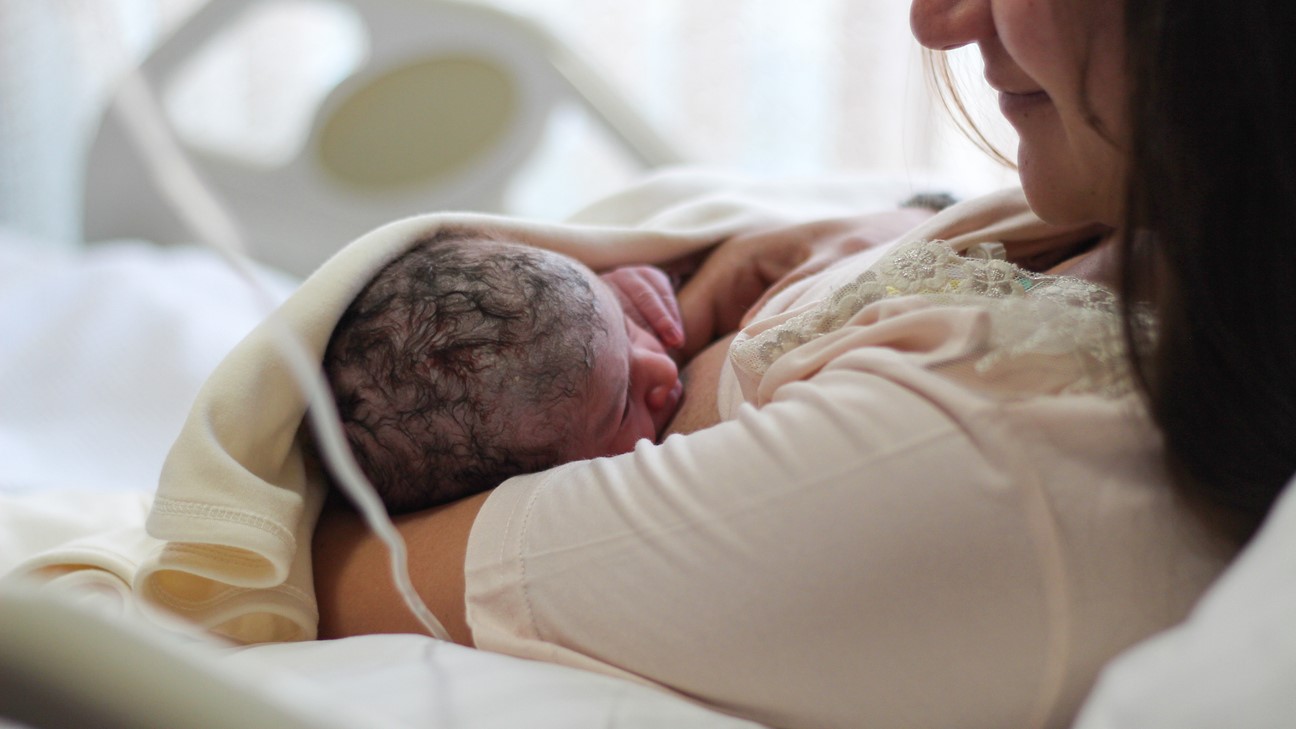Celebrate National Breastfeeding Month
Preparing for breastfeeding before baby’s arrival, supporting lactation professionals of the future

National Breastfeeding Month is a time focused on “advancing advocacy, protection, and promotion of breastfeeding to ensure all families have the opportunity to breastfeed.” We seized the occasions to sit down with two lactation consultants to discuss how parents can prepare for breastfeeding and to learn more about pathways for those interested in the lactation profession.
Breastfeeding preparation before birth
First, we chatted with Bridgette Griffin, RN, IBCLC, who is part of the Labor and Delivery lactation team at OHSU. She shared tips on how to prepare for breastfeeding ahead of baby’s arrival.
“We’d love for everyone to talk about breastfeeding in the antepartum stage,” says Griffin. “Start thinking about that process -- how you want to feed your baby and what that might look like.”
One way she advises to start is to learn the process of milk removal. Besides baby breastfeeding once born, parents can explore hand expression or breast pumps ahead of time.
“Hand expression can happen prior to delivery, as early as 37 or 38 weeks,” Griffin says. If given the green light from their provider, some may opt to use an electric breast pump. Either method allows them to see their body is producing colostrum before birth.
Some parents then bring in refrigerated or frozen colostrum on delivery day. “It’s great if they come in prepared,” says Griffin. “It can relieve some of the pressure to produce.”
Griffin also suggests attending one of the breastfeeding classes offered through the Childbirth and Early Parenting program. There are options for virtual, self-guided or in-person classes.
However, even with preparation, breastfeeding can present challenges. After baby’s arrival, Griffin and the rest of the lactation team are there to help troubleshoot and answer questions. Once home, infant feeding experts are also available by appointment at the Center for Women’s Health.
Supporting the next generation of lactation professionals
What kind of training is necessary to become a lactation specialist and what lies ahead for the future of the profession?
To answer these questions, we sat down with Michelle Bressler, program director of the Certificate in Human Lactation Program at the OHSU-PSU School of Public Health.
"Equitable access to human milk is how we build a just future." - Zoe Berliner, doula, public health studies student.
There are three pathways to become a lactation consultant through the program, now in its 5th year. All require 95 hours of lactation education and completion of clinical hours. Students then take an exam to earn the International Board Certified Lactation Consultant (IBCLC) certification.
Bressler says that students in the program may be doctors, midwives, nurses or other health professionals seeking to expand their skills. However, she adds that some students may be doulas and others may have no previous health care experience. “We have a whole set of people who come to the field because they fell in love with breastfeeding when they had their babies or they realized what a difference lactation support can make,” she says. “So we also have parents who might be career switching.” If students have no health care education or experience they must complete several health sciences college courses prior to enrolment.
"I found what I was looking for. I really enjoyed the entire experience, close interpersonal instruction and supervision." - Rebecca Killingsworth, RN.
Whatever brings students to the program, Bressler says the IBCLC certification can leads to a variety of employment options. Some go on to work in hospitals, OB/GYN or pediatric practices, community programs or in private practice.
“This is a field that inspires a lot of passion,” adds Bressler. “Many of us are here because we love babies and the whole process. It’s just so life-giving.”
Learn more about the OHSU-PSU School of Public Health Certificate in Human Lactation by visiting their website or by emailinglactation@pdx.edu.